The schedule for Kiai Kanjeng’s first UK tour, November – December 2004, placed considerable demands on the group with its travel and accommodation arrangements, sightseeing and other logistical matters. Much assistance and facilitation was provided by the Indonesian Embassy in London, who also provided lodgings for the touring Indonesian nationals at Wisma Caraka and Wisma Merdeka. Video clips from this tour are available on the video CD release, Kiai Kanjeng Greet the UK, which has English language subtitles and was issued in Indonesia early in 2005. It includes material from the performances listed below as well as from the BBC sessions. A version of this text was published in the Indonesian language version of “The Silent Pilgrimage” in June 2006 by Kompas Gramedia.
Preparing for the Tour
There was an atmosphere of excitement at Soekarno-Hatta Airport on Saturday afternoon, November 20th, 2004. Emha Ainun Nadjib, along with the Kiai Kanjeng gamelan ensemble were about to depart for England, and a few of us were there to see them off. We shared jokes over coffee; about how bitterly cold it was going to be; anecdotes about the UK and where to go during time off. We looked through the promotional materials for the UK Tour November 2004 and read Emha’s new book The Nation of the Laughing People from which he would draw thematically on the tour.
Emha and Kiai Kanjeng were to perform at a number of UK venues during the following week, after which Emha and Novia Kolopaking would continue on to Europe for a lecture tour taking in Bern, Zurich, Geneva, Enschede, Den Haag, Amsterdam, Paris, Roma, The Vatican, Berlin and Frankfurt.
They were to tour four UK cities, namely London, Birmingham, Manchester and Leeds, performing at the Lyttelton Lecture Theatre, Birmingham and the Midland Institute on Wednesday November 24th and then in Manchester at Club Underground, Barnes, The University of Manchester on November 26th, and finally at Parkinson Court, M Hall University of Leeds on the 27th.
According to witnesses, UK audiences were astounded by the performances. They had not thought that there could be music so exotic yet so universal. It was far from their expectations of what traditional and religious Islamic music would be like. Kiai Kanjeng said that they were pleased that their music could alter the previously-held perceptions of the audience.
The tour was partly arranged by KIBAR (Keluarga Islam Britania Raya or the Indonesian Muslim Families in Britain Association) for their Autumn Gathering, and the KBRI London.[1]
Kiai Kanjeng
Apart from Emha himself and Novia Kolopaking, the Kiai Kanjeng ensemble consisted of founder Novi Budianto, Bobit Santoso on keyboards and drums, Ardian on saron and rebana, Ari Sumarsono on violin and Bayu Kuncoro also played rebana.
Giyanti also played saron, kendang and rebana. Setyadi Dewanto was on drums and percussion, Setyanto Prajoko on bonang and electric guitar, Ismarwanto on bamboo flute, Yoyok Prasetyo on bass guitar and Joko Supriyanto on saron. Islamiyanto, Ananto, M. Zainul Arifin and Novia Kolopaking provided vocals. They were supported by four of the Kiai Kanjeng crew, namely Rahmat Mulyono, Sakurun Muzaki, Erfan Muchlis and Nadiroh As Sariroh.
Kiai Kanjeng had prepared many songs from their extensive repertoire for the UK performances, including Manungso, Man on The Land, Fatamorgana, There is A Time, Rampak Osing, Rabbi, Asyku Battsi, Kelahiran, Engkau Menjelang, Terbit Rembulan, Thibbil Qulub, a Potpourri of Shalawat (or Kenduri Shalawat) and Gangsaran. They also prepared gamelan adaptations of a number of Western songs such as Bach’s Minuet, Sailing by Rod Stewart, the soul classic Stand By Me, Victory (popularised by Bond) and the evergreen hits Summer Time and Love Story. Unfortunately, they were only able to play a limited selection at each performance.
UK Promotion
In London, SOAS (The School of Oriental and African Studies) released promotional material noting that:
“Kiai Kanjeng play gamelan, western and electronic instruments in a unique blend of eastern and western, traditional and modern styles. The group is led by Emha Ainun Nadjib, also known as Cak Nun who is a well-known Indonesian poet and musician.”[2]
Kiai Kanjeng were scheduled to perform at the Brunei Gallery, SOAS, on Thursday 25th November 2004 at 7.00 pm, and would then travel on to Kingston University, Manchester and Leeds. Leeds University wrote in their publicity materials concerning the concert scheduled there for November 27th that Emha Ainun Nadjib is the leader of the ‘Kiai Kanjeng’ gamelan music group.
“Cak Nun is a performing artist. He reads his own poems and performs them in collaboration with the Kiai Kanjeng gamelan music group.”
In other promotional materials it was noted that Emha is a ‘prolific poet’ and that his writing covers a wide range of subjects, including personal contemplation, social comment, criticism of the ruling government and social development. His views on a variety of subjects, they wrote, are based on Islamic teachings. As a writer and a columnist, his writings can be found in various national media in Indonesia and he has become a highly respected commentator on social and cultural matters in his country.’
“Cak Nun is also a Moslem intellectual and in this capacity he is frequently invited to contribute to seminars, open discussions, university meetings and many other events. He is a humanist and a guru who has travelled widely in his home country, Indonesia, especially in the rural areas. He educates people and talks with them about their problems. He holds a regular public forum in seven different cities every month; people use this forum to express their feelings and ideas on anything they want. He has the credibility and influence to gather people from all components of society and persuade them to sit down and discuss issues together.”
Materials reported that the Kiai Kanjeng gamelan ensemble consisted of fifteen members who would perform a range of songs and music, but all with their traditional gamelan instruments. Led by Emha Ainun Nadjib:
“Kiai Kanjeng plays music in many genres, from blues to Chinese music. In this visit, the group will perform gamelan music that shows the creative and friendly face of Islam, combined with a talk about Indonesia and Islam.”[3]
The BBC
Soon after arriving in the UK, the British Broadcasting Corporation or BBC asked Kiai Kanjeng to record two sets, each consisting of ten songs. The first set consisted of original songs by Kiai Kanjeng, which explored the gamelan, bringing it a global music perspective in which contemporary motifs were combined with ethnic nuances. The second set consisted of newer arrangements by Kiai Kanjeng of popular songs that had been given the gamelan ‘treatment’, such as songs by the Beatles, Rod Stewart and Cat Stevens.[4] Before appearing live at the BBC, Kiai Kanjeng were given a very limited sound-system, but as soon as the BBC technicians heard Kiai Kanjeng rehearse one number, they provided them with upgraded facilities.[5] Clips from the sessions are included in the VCD release Kiai Kanjeng Greets England.
SOAS
One high point of the tour came on Thursday November 25th, when Kiai Kanjeng performed at the Brunei Gallery, SOAS, University of London, in Russell Square, London. Ananto Wibowo and Novia Kolopaking were on vocal duties for an adaptation of the Cat Stevens song Wild World, accompanied by gamelan, saron, gendang and flute, all lending an original flavour to the musical mix.
The theme for the evening was “Crossing The Borders of Traditional Gamelan" and Cat Stevens, or Yusuf Islam himself, was present. Emha commented from the stage that prior to travelling to the UK “One of our prayers, Ya Allah, bring me Cat Stevens."
Yusuf Islam
The audience were unaware that Yusuf Islam was among them. He had entered after most people had taken their seats, after the performance had started, and the lights dimmed. At one point, Emha announced from the stage how happy Kiai Kanjeng were that Kiai Kanjeng’s performance was being observed by Yusuf "Cat Stevens" Islam, who sat in the third row with his wife.
Then, Kiai Kanjeng performed another song of Cat Stevens, from the 1970 album Tea for the Tillerman. This song has also been covered by Jimmy Cliff, Mr Big, and Jose Feliciano. The song was dedicated to Stevens, who was born as Demetri Georgiou in London, of Greek and Swedish parents.
Later in the performance, Emha began to sing Shalawat Badr to the melody of Rod Stewart’s Sailing, inviting the audience to join in, which they did. After the concert and applause were over, Yusuf Islam told Emha how much he had enjoyed the performance.
“This is a great way to get the message across of Islam, and I hope it continues”, he said.
Yusuf Islam said he had really enjoyed the performance. Yusuf Islam had recently performed with a number of other artists in Cape Town for AIDS relief, and met Nelson Mandela. He said he hoped himself that he might learn to play music like Kiai Kanjeng.
"I’d like to be able to play like that. I heard music like that in Egypt and Morocco.”
The Performance
The audience had begun arriving at 5.00pm at the Brunei Gallery, ground floor of SOAS, a building donated by the Sultan of Brunei Darussalam. With a capacity of 300, all seats were full by 7.00pm. Kiai Kanjeng began with songs of Shalawat (praise) to the Prophet Muhammad, sounding much like their desert origins, despite the presence of gamelan and flute.
All at once, Kiai Kanjeng would change course and style, seamlessly sequencing into the traditional Indonesian song Gundul Pacul dominated by gamelan and violin. Vocalist Ananto also demonstrated that they could "rock" with a popular Ricky Martin number, Shake Your Bon-Bon.
Emha himself commented that music could not be separated from mosque and market. "We come from Indonesia. Our music comes from the mosque and the marketplace,” he intoned in fluent English, but with a heavy Javanese accent. When he said to the audience in English “allow me to tell you something about my country,” he was greeted with applause.
After that, Emha sang some more ‘Shalawat’ accompanied by Kiai Kanjeng, and the audience were transported to the ambience of the mosque. The audience were also treated to a version of the music from Victory popularised by the group Bond. Then there was a ten- minute recess.
The interaction between performers and audience was excellent, with many of the audience joining in where they could, many dancing when Ananto and Novia sang the dangdut number Haram by Rhoma Irama.
Sabrang, who graduated from Alberta University, Canada, is Emha’s son from his first marriage. He was on stage as MC, and he mentioned that the icons of the UK best known in Indonesia were Lady Diana, Robin Hood and Mr Bean. This was met by laughter from the audience. Then Kiai Kanjeng performed the Bryan Adams theme song from the film Robin Hood, Everything I do, I do it for you, with gamelan and flute and with Ari Sumarsono on violin.
When Sabrang again took the stage at 9.00pm to announce that the concert was over, there were protests from the audience who demanded more. "All right, I don’t know what you call this, Arabic, blues or whatever, you decide,” said Sabrang in fluent English.
So Kiai Kanjeng performed Da-Uni, evoking the desert once more with violin, percussion and flute. “More, more” shouted the audience, as Sabrang glanced at the clock on the wall. But Emha came up and led a prayer, leading into Shalawat Badr to the melody of Silent Night.
"Shalatullah Salamullah, Alla Toha Rasulillah, Shalatullah Salamullah. Alla Yasin Habibillah," the song intoned. "I’m the Indonesian Pavarotti,” joked Emha afterwards.
As for the imminent city tour marathon in Birmingham, Manchester and Leeds, Emha admitted that Kiai Kanjeng were used to performing from one stage to the next and to travelling from city to city. He said they were always on the road, having had a full schedule for the last five months.
“We only had a day off just recently for the Idul Fitri festival” (marking the end of the Muslim fasting month of Ramadhan). He added that Kiai Kanjeng performed largely based on invitations from the public. “We only respond to requests from the people” Emha noted.
The Response
The Indonesians resident in the four UK cities toured by Emha and Kiai Kanjeng, having been starved of their traditional entertainment, received them warmly in this wintry month. The performances also served to enhance international relations with the attendance of a number of diplomats from Central Asia as well as the Ambassador of Bosnia.
Emha, a recipient of the prestigious Adam Malik award, commented that the UK audiences were quite surprised by the performances and the music of Kiai Kanjeng. When they toured Egypt, audiences there felt their music was being returned to them in songs performed by Kiai Kanjeng originally by Ummi Kultsum such as El-Athlal. Emha said that primarily Kiai Kanjeng were less a music group than a promoter of brotherhood, and that one of Kiai Kanjeng’s activities was to help resolve problems in communities, be they economic, social or political.
Emha has also released music critical of the Indonesian government, such as his album Perahu Retak or Cracked Boat. It was based on themes of social justice and the impact of government policy on the weak.
Director of South East Asian Studies at SOAS, Dr. Jenkin Wilkins ‘protested’ to Indonesian Cultural Attaché Bambang Warsito that he had not been told beforehand that the performance would be so good, both from an artistic point of view and in terms of the communication of culture. Warsito answered: “How could I tell you? I only found out myself this evening!”
A number of ambassadors met Emha afterwards to thank him for the “super performance and the very, very rich cultural and spiritual experience.” Professor Ulrich Kraaft embraced Emha saying “you from Kiai Kanjeng must come more often to our campus” and another senior visiting artist said it was “first class world music.”[6]
One lady, originally from Central Java, who was attending the UK graduation of her son, was very happy to be in the audience for Kiai Kanjeng’s performance, but was disappointed they had not played her favourite - Tombo Ati, a classic song evoking Islamic themes of piety and redemption. There simply had not been enough time.
One lecturer in the Indonesian language at SOAS, Bern Malton, said that the performance was amazing. “Fantastic, amazing,” said the man who had made several trips to Indonesia. He was sure UK audiences would appreciate the group’s performances.
Head of the Indonesian mission to the UK, Eddy Pratomo, also agreed that the performance had been tremendous, and that it helped promote a more brotherly sense of Islam, extolling its universal values and reinterpreting Western songs with nuances of Islam.
Eddy, who has been in an acting-ambassador capacity since Ambassador Juwono Sudarsono was appointed Minister of Defence, said that there was no need for conflict, that it was part of Indonesia’s diplomatic mission to introduce people who might not otherwise know of it to Indonesia’s rich culture. He praised Kiai Kanjeng and noted his pride in Emha’s ability to inspire simultaneously an attitude of religiosity, nationalism, unity and togetherness.
Others said it was important to criticise; that critics were necessary. Nizma Agustjik, a long-term resident in the UK active in social affairs said how much she had enjoyed the performance, commenting on how ‘witty’ Emha had been.
Leeds
We move on to Leeds. From the physical perspective with the spacious Main University Hall, and from the technical perspective with a better sound system than that used before, and with a larger, more international audience, the performance at Leeds University arguably represented the climax of the tour. Here the concert exceeded its allotted time by over an hour.[7]
The atmosphere in Leeds was intense yet harmonious, with a terrific rapport established between Kiai Kanjeng and the audience. The audience were of various ethnicities, and some of them danced on stage to the rhythms. To avoid the sense that Kiai Kanjeng were merely one-dimensional performers, they held a workshop as they had in Manchester as many in the audience were music students.
Preparing for the Tour
There was an atmosphere of excitement at Soekarno-Hatta Airport on Saturday afternoon, November 20th, 2004. Emha Ainun Nadjib, along with the Kiai Kanjeng gamelan ensemble were about to depart for England, and a few of us were there to see them off. We shared jokes over coffee; about how bitterly cold it was going to be; anecdotes about the UK and where to go during time off. We looked through the promotional materials for the UK Tour November 2004 and read Emha’s new book The Nation of the Laughing People from which he would draw thematically on the tour.
Emha and Kiai Kanjeng were to perform at a number of UK venues during the following week, after which Emha and Novia Kolopaking would continue on to Europe for a lecture tour taking in Bern, Zurich, Geneva, Enschede, Den Haag, Amsterdam, Paris, Roma, The Vatican, Berlin and Frankfurt.
They were to tour four UK cities, namely London, Birmingham, Manchester and Leeds, performing at the Lyttelton Lecture Theatre, Birmingham and the Midland Institute on Wednesday November 24th and then in Manchester at Club Underground, Barnes, The University of Manchester on November 26th, and finally at Parkinson Court, M Hall University of Leeds on the 27th.
According to witnesses, UK audiences were astounded by the performances. They had not thought that there could be music so exotic yet so universal. It was far from their expectations of what traditional and religious Islamic music would be like. Kiai Kanjeng said that they were pleased that their music could alter the previously-held perceptions of the audience.
The tour was partly arranged by KIBAR (Keluarga Islam Britania Raya or the Indonesian Muslim Families in Britain Association) for their Autumn Gathering, and the KBRI London.[1]
Kiai Kanjeng
Apart from Emha himself and Novia Kolopaking, the Kiai Kanjeng ensemble consisted of founder Novi Budianto, Bobit Santoso on keyboards and drums, Ardian on saron and rebana, Ari Sumarsono on violin and Bayu Kuncoro also played rebana.
Giyanti also played saron, kendang and rebana. Setyadi Dewanto was on drums and percussion, Setyanto Prajoko on bonang and electric guitar, Ismarwanto on bamboo flute, Yoyok Prasetyo on bass guitar and Joko Supriyanto on saron. Islamiyanto, Ananto, M. Zainul Arifin and Novia Kolopaking provided vocals. They were supported by four of the Kiai Kanjeng crew, namely Rahmat Mulyono, Sakurun Muzaki, Erfan Muchlis and Nadiroh As Sariroh.
Kiai Kanjeng had prepared many songs from their extensive repertoire for the UK performances, including Manungso, Man on The Land, Fatamorgana, There is A Time, Rampak Osing, Rabbi, Asyku Battsi, Kelahiran, Engkau Menjelang, Terbit Rembulan, Thibbil Qulub, a Potpourri of Shalawat (or Kenduri Shalawat) and Gangsaran. They also prepared gamelan adaptations of a number of Western songs such as Bach’s Minuet, Sailing by Rod Stewart, the soul classic Stand By Me, Victory (popularised by Bond) and the evergreen hits Summer Time and Love Story. Unfortunately, they were only able to play a limited selection at each performance.
UK Promotion
In London, SOAS (The School of Oriental and African Studies) released promotional material noting that:
“Kiai Kanjeng play gamelan, western and electronic instruments in a unique blend of eastern and western, traditional and modern styles. The group is led by Emha Ainun Nadjib, also known as Cak Nun who is a well-known Indonesian poet and musician.”[2]
Kiai Kanjeng were scheduled to perform at the Brunei Gallery, SOAS, on Thursday 25th November 2004 at 7.00 pm, and would then travel on to Kingston University, Manchester and Leeds. Leeds University wrote in their publicity materials concerning the concert scheduled there for November 27th that Emha Ainun Nadjib is the leader of the ‘Kiai Kanjeng’ gamelan music group.
“Cak Nun is a performing artist. He reads his own poems and performs them in collaboration with the Kiai Kanjeng gamelan music group.”
In other promotional materials it was noted that Emha is a ‘prolific poet’ and that his writing covers a wide range of subjects, including personal contemplation, social comment, criticism of the ruling government and social development. His views on a variety of subjects, they wrote, are based on Islamic teachings. As a writer and a columnist, his writings can be found in various national media in Indonesia and he has become a highly respected commentator on social and cultural matters in his country.’
“Cak Nun is also a Moslem intellectual and in this capacity he is frequently invited to contribute to seminars, open discussions, university meetings and many other events. He is a humanist and a guru who has travelled widely in his home country, Indonesia, especially in the rural areas. He educates people and talks with them about their problems. He holds a regular public forum in seven different cities every month; people use this forum to express their feelings and ideas on anything they want. He has the credibility and influence to gather people from all components of society and persuade them to sit down and discuss issues together.”
Materials reported that the Kiai Kanjeng gamelan ensemble consisted of fifteen members who would perform a range of songs and music, but all with their traditional gamelan instruments. Led by Emha Ainun Nadjib:
“Kiai Kanjeng plays music in many genres, from blues to Chinese music. In this visit, the group will perform gamelan music that shows the creative and friendly face of Islam, combined with a talk about Indonesia and Islam.”[3]
The BBC
Soon after arriving in the UK, the British Broadcasting Corporation or BBC asked Kiai Kanjeng to record two sets, each consisting of ten songs. The first set consisted of original songs by Kiai Kanjeng, which explored the gamelan, bringing it a global music perspective in which contemporary motifs were combined with ethnic nuances. The second set consisted of newer arrangements by Kiai Kanjeng of popular songs that had been given the gamelan ‘treatment’, such as songs by the Beatles, Rod Stewart and Cat Stevens.[4] Before appearing live at the BBC, Kiai Kanjeng were given a very limited sound-system, but as soon as the BBC technicians heard Kiai Kanjeng rehearse one number, they provided them with upgraded facilities.[5] Clips from the sessions are included in the VCD release Kiai Kanjeng Greets England.
SOAS
One high point of the tour came on Thursday November 25th, when Kiai Kanjeng performed at the Brunei Gallery, SOAS, University of London, in Russell Square, London. Ananto Wibowo and Novia Kolopaking were on vocal duties for an adaptation of the Cat Stevens song Wild World, accompanied by gamelan, saron, gendang and flute, all lending an original flavour to the musical mix.
The theme for the evening was “Crossing The Borders of Traditional Gamelan" and Cat Stevens, or Yusuf Islam himself, was present. Emha commented from the stage that prior to travelling to the UK “One of our prayers, Ya Allah, bring me Cat Stevens."
Yusuf Islam
The audience were unaware that Yusuf Islam was among them. He had entered after most people had taken their seats, after the performance had started, and the lights dimmed. At one point, Emha announced from the stage how happy Kiai Kanjeng were that Kiai Kanjeng’s performance was being observed by Yusuf "Cat Stevens" Islam, who sat in the third row with his wife.
Then, Kiai Kanjeng performed another song of Cat Stevens, from the 1970 album Tea for the Tillerman. This song has also been covered by Jimmy Cliff, Mr Big, and Jose Feliciano. The song was dedicated to Stevens, who was born as Demetri Georgiou in London, of Greek and Swedish parents.
Later in the performance, Emha began to sing Shalawat Badr to the melody of Rod Stewart’s Sailing, inviting the audience to join in, which they did. After the concert and applause were over, Yusuf Islam told Emha how much he had enjoyed the performance.
“This is a great way to get the message across of Islam, and I hope it continues”, he said.
Yusuf Islam said he had really enjoyed the performance. Yusuf Islam had recently performed with a number of other artists in Cape Town for AIDS relief, and met Nelson Mandela. He said he hoped himself that he might learn to play music like Kiai Kanjeng.
"I’d like to be able to play like that. I heard music like that in Egypt and Morocco.”
The Performance
The audience had begun arriving at 5.00pm at the Brunei Gallery, ground floor of SOAS, a building donated by the Sultan of Brunei Darussalam. With a capacity of 300, all seats were full by 7.00pm. Kiai Kanjeng began with songs of Shalawat (praise) to the Prophet Muhammad, sounding much like their desert origins, despite the presence of gamelan and flute.
All at once, Kiai Kanjeng would change course and style, seamlessly sequencing into the traditional Indonesian song Gundul Pacul dominated by gamelan and violin. Vocalist Ananto also demonstrated that they could "rock" with a popular Ricky Martin number, Shake Your Bon-Bon.
Emha himself commented that music could not be separated from mosque and market. "We come from Indonesia. Our music comes from the mosque and the marketplace,” he intoned in fluent English, but with a heavy Javanese accent. When he said to the audience in English “allow me to tell you something about my country,” he was greeted with applause.
After that, Emha sang some more ‘Shalawat’ accompanied by Kiai Kanjeng, and the audience were transported to the ambience of the mosque. The audience were also treated to a version of the music from Victory popularised by the group Bond. Then there was a ten- minute recess.
The interaction between performers and audience was excellent, with many of the audience joining in where they could, many dancing when Ananto and Novia sang the dangdut number Haram by Rhoma Irama.
Sabrang, who graduated from Alberta University, Canada, is Emha’s son from his first marriage. He was on stage as MC, and he mentioned that the icons of the UK best known in Indonesia were Lady Diana, Robin Hood and Mr Bean. This was met by laughter from the audience. Then Kiai Kanjeng performed the Bryan Adams theme song from the film Robin Hood, Everything I do, I do it for you, with gamelan and flute and with Ari Sumarsono on violin.
When Sabrang again took the stage at 9.00pm to announce that the concert was over, there were protests from the audience who demanded more. "All right, I don’t know what you call this, Arabic, blues or whatever, you decide,” said Sabrang in fluent English.
So Kiai Kanjeng performed Da-Uni, evoking the desert once more with violin, percussion and flute. “More, more” shouted the audience, as Sabrang glanced at the clock on the wall. But Emha came up and led a prayer, leading into Shalawat Badr to the melody of Silent Night.
"Shalatullah Salamullah, Alla Toha Rasulillah, Shalatullah Salamullah. Alla Yasin Habibillah," the song intoned. "I’m the Indonesian Pavarotti,” joked Emha afterwards.
As for the imminent city tour marathon in Birmingham, Manchester and Leeds, Emha admitted that Kiai Kanjeng were used to performing from one stage to the next and to travelling from city to city. He said they were always on the road, having had a full schedule for the last five months.
“We only had a day off just recently for the Idul Fitri festival” (marking the end of the Muslim fasting month of Ramadhan). He added that Kiai Kanjeng performed largely based on invitations from the public. “We only respond to requests from the people” Emha noted.
The Response
The Indonesians resident in the four UK cities toured by Emha and Kiai Kanjeng, having been starved of their traditional entertainment, received them warmly in this wintry month. The performances also served to enhance international relations with the attendance of a number of diplomats from Central Asia as well as the Ambassador of Bosnia.
Emha, a recipient of the prestigious Adam Malik award, commented that the UK audiences were quite surprised by the performances and the music of Kiai Kanjeng. When they toured Egypt, audiences there felt their music was being returned to them in songs performed by Kiai Kanjeng originally by Ummi Kultsum such as El-Athlal. Emha said that primarily Kiai Kanjeng were less a music group than a promoter of brotherhood, and that one of Kiai Kanjeng’s activities was to help resolve problems in communities, be they economic, social or political.
Emha has also released music critical of the Indonesian government, such as his album Perahu Retak or Cracked Boat. It was based on themes of social justice and the impact of government policy on the weak.
Director of South East Asian Studies at SOAS, Dr. Jenkin Wilkins ‘protested’ to Indonesian Cultural Attaché Bambang Warsito that he had not been told beforehand that the performance would be so good, both from an artistic point of view and in terms of the communication of culture. Warsito answered: “How could I tell you? I only found out myself this evening!”
A number of ambassadors met Emha afterwards to thank him for the “super performance and the very, very rich cultural and spiritual experience.” Professor Ulrich Kraaft embraced Emha saying “you from Kiai Kanjeng must come more often to our campus” and another senior visiting artist said it was “first class world music.”[6]
One lady, originally from Central Java, who was attending the UK graduation of her son, was very happy to be in the audience for Kiai Kanjeng’s performance, but was disappointed they had not played her favourite - Tombo Ati, a classic song evoking Islamic themes of piety and redemption. There simply had not been enough time.
One lecturer in the Indonesian language at SOAS, Bern Malton, said that the performance was amazing. “Fantastic, amazing,” said the man who had made several trips to Indonesia. He was sure UK audiences would appreciate the group’s performances.
Head of the Indonesian mission to the UK, Eddy Pratomo, also agreed that the performance had been tremendous, and that it helped promote a more brotherly sense of Islam, extolling its universal values and reinterpreting Western songs with nuances of Islam.
Eddy, who has been in an acting-ambassador capacity since Ambassador Juwono Sudarsono was appointed Minister of Defence, said that there was no need for conflict, that it was part of Indonesia’s diplomatic mission to introduce people who might not otherwise know of it to Indonesia’s rich culture. He praised Kiai Kanjeng and noted his pride in Emha’s ability to inspire simultaneously an attitude of religiosity, nationalism, unity and togetherness.
Others said it was important to criticise; that critics were necessary. Nizma Agustjik, a long-term resident in the UK active in social affairs said how much she had enjoyed the performance, commenting on how ‘witty’ Emha had been.
Leeds
We move on to Leeds. From the physical perspective with the spacious Main University Hall, and from the technical perspective with a better sound system than that used before, and with a larger, more international audience, the performance at Leeds University arguably represented the climax of the tour. Here the concert exceeded its allotted time by over an hour.[7]
The atmosphere in Leeds was intense yet harmonious, with a terrific rapport established between Kiai Kanjeng and the audience. The audience were of various ethnicities, and some of them danced on stage to the rhythms. To avoid the sense that Kiai Kanjeng were merely one-dimensional performers, they held a workshop as they had in Manchester as many in the audience were music students.
Here they explained thoroughly the traditional Javanese musical structures and use of the gamelan in various musical styles. It was a very communicative workshop with many concrete examples. Among the audience were students, Indonesians resident in the UK, and a number of other fans who knew of the performance through the mail list or web site.
The tour demonstrated very well the universal appeal of Kiai Kanjeng’s music and the contribution it makes to harmonious understanding among peoples. During the tour Emha commented that Kiai Kanjeng’s music was not ‘puritan’ and there was no problem in adapting Western music. He said that they only adapted music with the intention of demonstrating the musical styles that the group could play, predominantly on gamelan, which could be used for both Arabic and western songs.
While preparing for the tour, Emha and Kiai Kanjeng put together a package of publicity materials. A pamphlet was included with texts based on comments made by observers and audiences at previous international performances. Set against dramatic pictures, the text came alive when it described, from Australia for example, the “cacophony of sound”, which when all the instruments were combined with vocals, “created a dynamic percussive sound…highlighting and connecting the old with the new.” The following extract tells its own story:
“Kiai Kanjeng used the repetitious sarons[8] to maximum effect, often providing the percussive rhythm as a backdrop to a melodic suling[9], violin or synthesizer. Some songs, like the poetry-music Pacul Segoro had a rock anthem sound, whereas jazz sensibility pervaded the audience favourite Fatamorgana, with an enthusiastic crowd joining in to clap the rhythm. The tambourine, drum and chant-like singing of Jaman Wis Akhir[10] had a more Arabic influence, whereas Ruang Rindu’s offbeat, almost reggae overtones complimented a song all about love and being happy…”[11]
The comments included from observers in Malaysia were no less enthusiastic. One contributor said that in Indonesia, the concerts were more ‘spontaneous’ that there were more people, that a Kiai Kanjeng performance was ‘sometimes more like a public meeting.’ He said that the audience liked the performers to ‘interact with the people onstage.’ As a result, one would often witness officers dancing together with labourers.
Another commented that Kiai Kanjeng’s music was ‘pretty egalitarian, even against the current popular culture in Indonesia.’ At the same time, the musicians were complimented on their ‘fine musical and lyrical structure musically’ and for their composing songs ‘without boundaries.’ Observers mentioned that Kiai Kanjeng ‘represent an oppressed people’, and that ‘they also play the blues.’ Kiai Kanjeng were said to be very flexible in the genres that they can play.[12]
Egypt has a special place in the hearts of Emha and Kiai Kanjeng. They toured Egypt with a repertoire of songs by the Egyptian star, Ummi Kultsum. A video was released of the tour and more recently a collection of the songs on CD and cassette. The responses to the group’s performances in Egypt were startling in their passion and warmth. One person, having watched a performance of the groups, commented:
“…these are the lost Andalusia. I can see the light of Prophet Muhammad in your face. I can only hear praise to the Prophet coming from your throats.”
The Governor of Thanta said to the audience and to Kiai Kanjeng “I will die if you leave Thanta without first receiving our love, the people of Thanta, for you.” The response from the Egyptian authorities was just as passionate. Reports on the tour noted that “for the first time in history, Indonesia has a two hour slot of airtime on NEIL (Middle East regional television) in Egypt. Kiai Kanjeng shows that Indonesians, using only “terbang”, “seruling”[13] and violin, have captivated audiences. The show and some interviews even had a rerun in Ismalia and Alexandria.”[14]
Ustadz Jamal, a member of the staff from the Department of Culture accompanied Kiai Kanjeng throughout their tour Egypt. He explained that:
“My job is to accompany many groups from around the world. But I have never felt this connected; we interact without distance. I keep on seeing Egyptians cry and cry to meet their Moslem brothers and sisters, who love the Prophet Muhammad dearly. There has never been a group visit our country who have reached this level of success. More than anything, Kiai Kanjeng have awakened our pride in Ummi Kultsum…”
Observers from Indonesia noted that Kiai Kanjeng were ‘a seemingly impossible group of people. Among the eleven people who play the instruments, only one has a formal degree? Can this be explained by statistics?’ Another stated that the music of Kiai Kanjeng encompasses many parts of world music. Not only can they play all styles, it was said, but they can also make a composition that nicely puts the different kinds of music into one adventurous blend. An innocent blues can suddenly morph into a melodious Arabic. A Javanese taste can suddenly turn into a danceable salsa. “Quite frankly”, said the observer, ‘I have never found anyone or any group that has ever tried this kind of exploration.’
One of the group’s main instruments is the gamelan, a traditional musical instrument from Java. However, the gamelan played by Kiai Kanjeng is no ordinary gamelan. It has been modified so that it can accommodate the group’s thirst for exploration. With this gamelan, they can play original Javanese tunes, Arabic songs, blues or jazz quite comfortably. In addition to the gamelan set, there are more modern instruments like bass guitar, keyboards and violins in their arsenal. Another unique characteristic of the group is the players themselves. One band member is not tied to just one instrument. Many of them are able to switch mid-song to a different instrument.
“I believe music is a gift come from gifted people. And this group is certainly a bunch of gifted people. Maybe I do not know much about music. However, I know a jewel when there is one.”[15]
It is clear that Emha is received very well abroad, and that the recent UK and European tours were particularly successful. It is somewhat surprising therefore that he has not met with more commercial and critical success in Indonesia. However, when one analyses the context of Emha’s career and his confrontations with the Soeharto government, it is perhaps not so surprising. Notwithstanding that, one might ask why he has not seen greater success during the period of the reformist governments that followed Soeharto. Emha himself would answer that having struggled for democratic emancipation in one era, he has been discarded as simply old-fashioned by the next.
[1] Some foregoing information and quotes taken from KIBAR mailing list material posted on http://www.padhangmbulan.com/
[2] Source: http://www.indonesianperformingarts.org/Events.html
[3] Source: http://www.leeds.ac.uk/international/news.htm#indonesian
[4] December 1st 2004 report in Indonesian daily newspaper Suara Merdeka
[5] Some information from Laporan Perjalanan KK di SOAS London, Inggris, 2004, by Zaki/kk
[6] Some information from Laporan Perjalanan KK di SOAS London, Inggris, 2004, by zaki/kk http://www.padhangmbulan.com/
[7] Source: Final Leeds vs. KK: //maiyah/kk/doc/04 http://www.padhangmbulan.com/
[8] A type of gamelan.
[9] Flute.
[10] May be translated as The End of Time, or The Last Days.
[11] Suara Bendhe, No.3 March 2004, Melbourne Community Gamelan Inc. Australia
[12] Comments edited from remarks made by Nizam Zakaria, Malaysia
[13] Flute.
[14] Journal Maiyah/VII/03
[15] Comments from Indonesia based on remarks made by Sabrang, Emha’s son.

































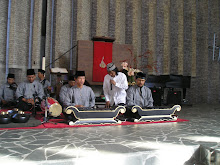
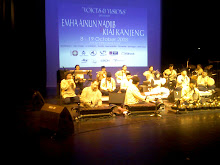

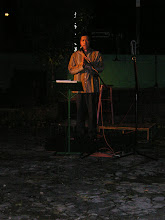



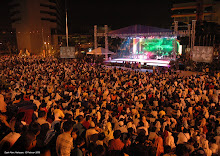
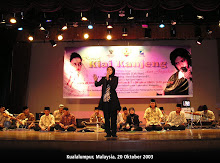
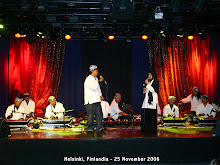.jpg)



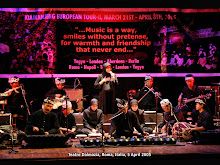


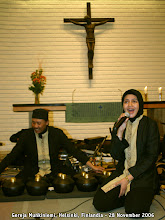.jpg)

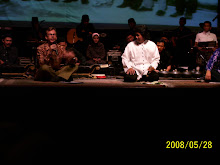.jpg)
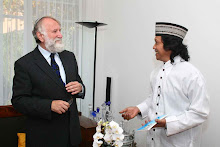
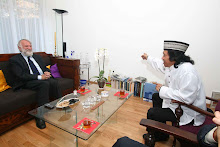
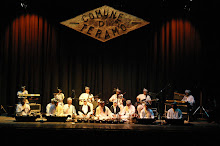


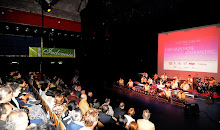

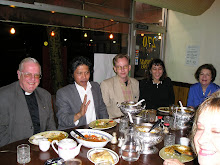


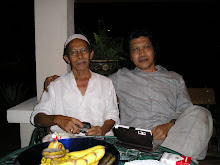
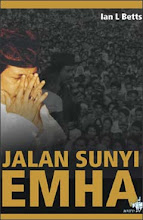
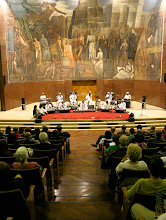
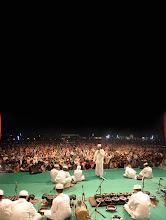

No comments:
Post a Comment